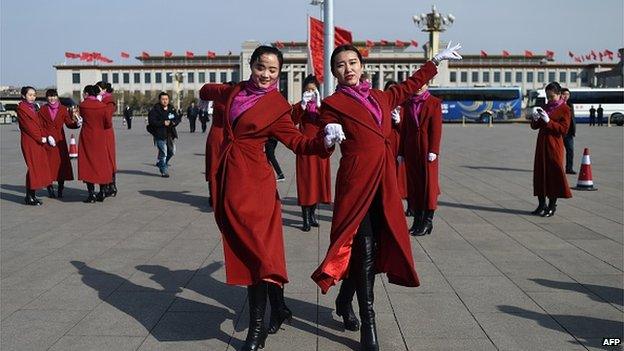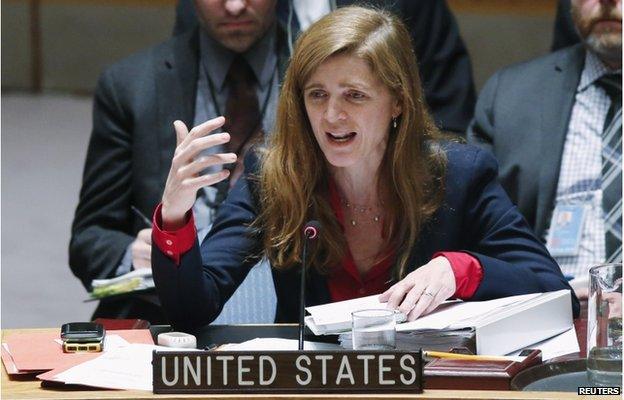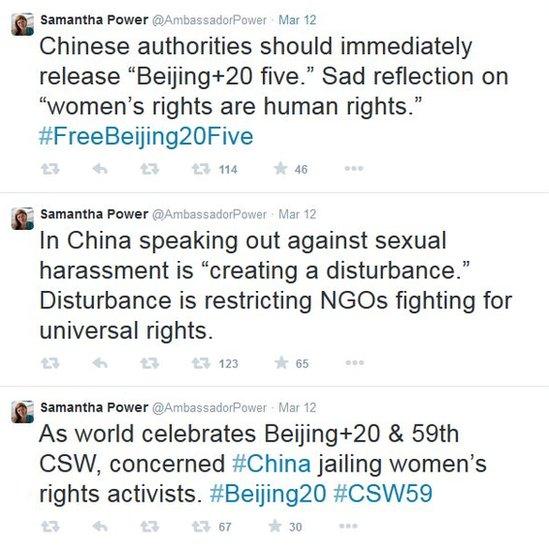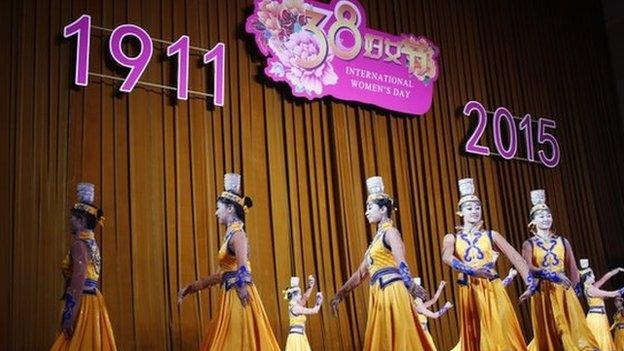China rejects calls to free women's rights activists
- Published

The arrests came as China marked International Women's Day amid its top political meetings
China has rejected calls from several foreign governments to free five women's rights activists who have spent nearly three weeks in detention.
Foreign ministry spokesman Hua Chunying said that nobody had the right to ask China to release the group.
The activists were planning public campaigns against sexual harassment.
They were arrested in early March in the run-up to China's top political meetings, which coincided with International Women's Day.
The BBC's Celia Hatton in Beijing says grassroots groups in China have been reporting a marked rise in the detention of political activists, as the ruling Communist Party moves to suppress political opposition.

The US ambassador to the United Nations, Samantha Power, has called for the women's release
'Stop interference'
Ms Hua said in a daily briefing to reporters on Wednesday that Beijing "hoped relevant people would stop interfering in China's judicial sovereignty".
Her remarks came a day after the UK's Foreign Office said, external it was "deeply concerned" about the ongoing detention.
A spokesman said that the women were "peacefully demonstrating" against sexual harassment and that the UK was particularly concerned by reports that the detainees have been denied due legal process and medical care.
The US ambassador to the United Nations, Samantha Power, and the European Union have also called for their release.
Ms Power, who has tweeted several times on the topic, reiterated her call last week in a fresh statement, external, saying: "If China is committed to advancing the rights of women, then it should be working to address the issues raised by these women's rights activists - not silencing them."

The five women - Wu Rongrong, Wei Tingting, Wang Man, Zheng Churan and Li Tingting - were planning a march in a Beijing park and other gatherings in Beijing and Guangzhou, calling for safe sex and awareness of sexual harassment.
Two of the women suffer from serious illnesses - chronic liver disease and a heart condition - and have been moved to a hospital detention centre.
Their health problems have been exacerbated by lengthy interrogation sessions, their lawyers say.
- Published9 March 2015
